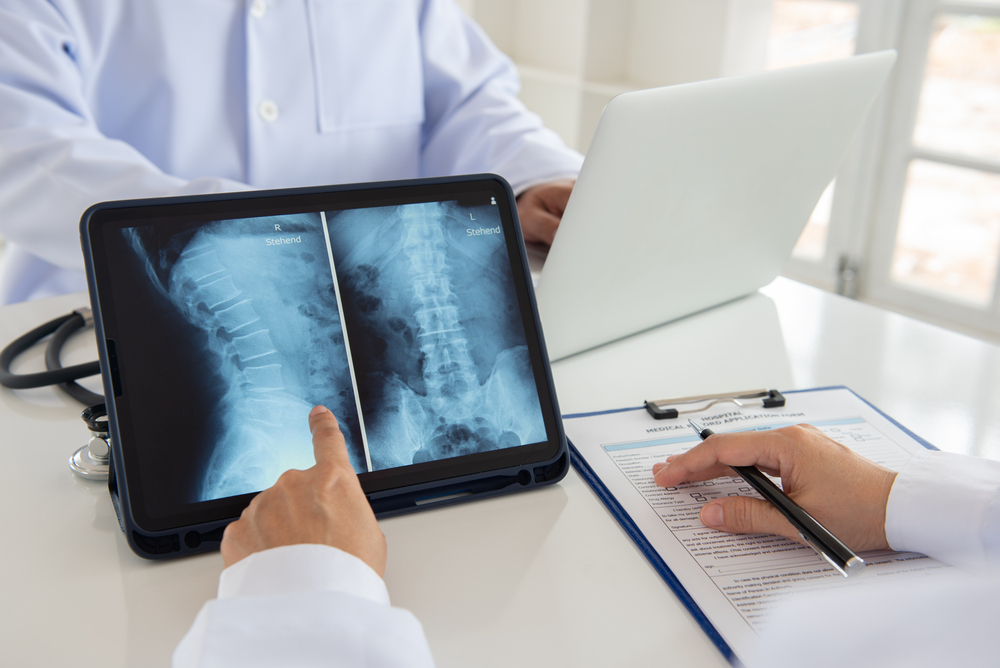 Rocky Mountain Brain and Spine Institute specializes in lumbar decompression and more specifically, minimally invasive tubular decompressions. Many are impacted by compression in the lumbar of their spines and struggle with how to manage or take care of the problem. To learn more about what it is and what is involved in the procedure, continue reading.
Rocky Mountain Brain and Spine Institute specializes in lumbar decompression and more specifically, minimally invasive tubular decompressions. Many are impacted by compression in the lumbar of their spines and struggle with how to manage or take care of the problem. To learn more about what it is and what is involved in the procedure, continue reading.
Lumbar decompression is one of the most common procedures performed in the lumbar spine.
Pressure on the nerves in the low back can occur from multiple factors. The adjoining pictures display the following:
- A normal MRI picture showing no pressure on the nerves.
- Disc bulges or herniations can press on the nerves.
- A cyst coming from the facet joint (synovial cyst) can press on the nerves.
- A Combination of bone spurs, bulges, joints, ligaments can press on the nerves.
Narrowing of the lumbar spine canal and pressure on the nerves most commonly causes leg symptoms, including pain down the leg (radiculopathy or “sciatica”), leg/foot weakness, or leg/ foot numbness and tingling. Sometimes back pain can also occur.
The initial treatment of back or leg symptoms is often conservative. Observation with or without over-the-counter anti-inflammatories or tylenol may be tried. Sometimes patients try chiropractors or acupuncture. With persistent symptoms, therapy may be the next option. If after a few weeks symptoms are still intractable, then advanced imaging like a spine x-ray or spine MRI may be pursued. If the MRI shows nerve compression, an injection may be tried.
Usually conservative options are tried before considering surgery. In certain circumstances, imaging and surgery are sought sooner. Lumbar decompression may be a good option when the nerves are being compressed and no spinal instability is seen. Lumbar decompression may be performed as an open procedure, but often minimally invasive tubular lumbar decompression can be a better option.
In an open lumbar decompression, the muscles are ripped off the lumbar bones and held open with retractors. This may lead to more muscle damage, as well as damage to the joints above and below the level of surgery.
At Rocky Mountain Brain & Spine Institute, we perform Lumbar Decompressions. Contact us to schedule an appointment with our BOARD CERTIFIED team.
To learn more about the Rock Mountain Brain and Spine Institute, its specialties, and more click here.






